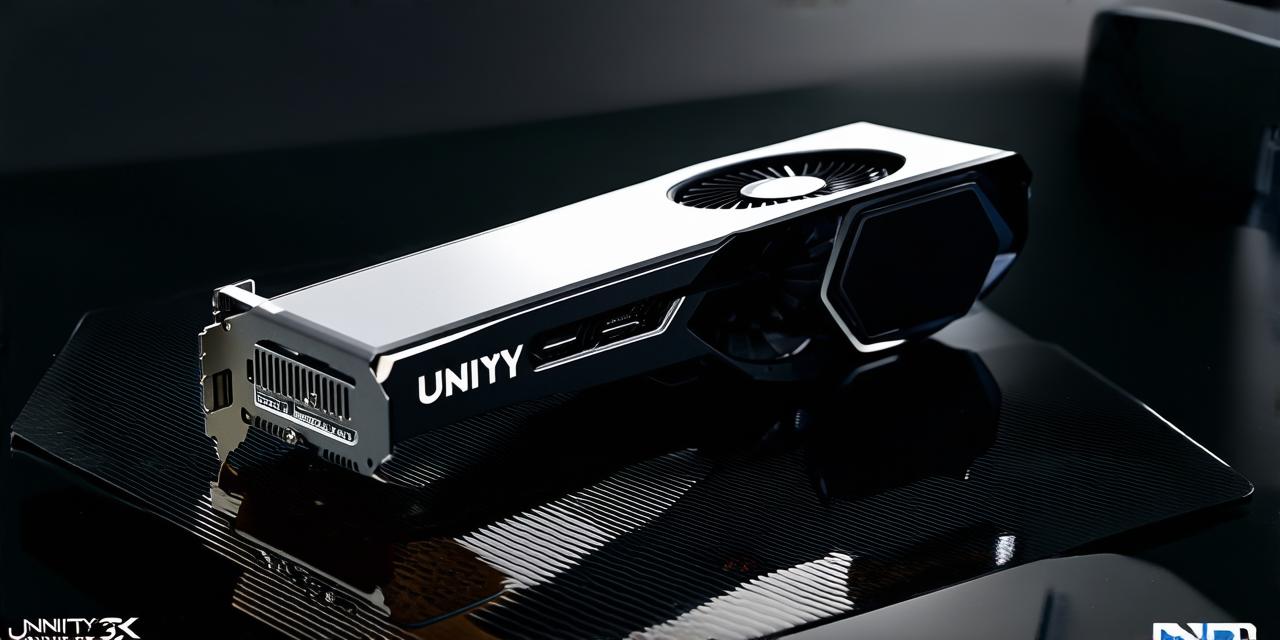When it comes to choosing between Unity and Unreal Engine for 3D development, it’s important to weigh the pros and cons carefully. Both engines are popular and widely used, but they each have unique features that make them suitable for different use cases. In this article, we will explore these differences in greater detail, helping you decide which engine is best for your project.
Unity:
One of the main advantages of Unity is its user-friendly interface. It’s easy to learn and use, even for beginners, making it an excellent choice for developers who are new to game development. Additionally, Unity supports cross-platform development, meaning you can create a game or application that runs seamlessly on multiple devices, including smartphones, tablets, PCs, and consoles. This makes it ideal for creating games or applications that need to run across a wide range of devices.
Another advantage of Unity is its extensive community. It has a large and active community of developers who contribute to the platform and provide support and resources for projects. Unity also has a vast library of assets and plugins, which can save you time and effort when developing your game or application.
In terms of performance, Unity is optimized for speed and efficiency, making it ideal for real-time applications that require fast rendering and minimal lag. It uses a lightweight scripting language called C, which makes it easy to write efficient code. While Unreal Engine has more advanced features, Unity’s simplicity and ease of use make it an excellent choice for developers who want to get started quickly.
Unreal Engine:
On the other hand, Unreal Engine is a powerful game engine that is widely used in the gaming industry. It has advanced features that make it ideal for creating high-performance games with stunning visuals and complex physics. While Unity’s interface is user-friendly, Unreal Engine’s steep learning curve makes it less suitable for beginners. However, this also means that it offers more flexibility and control for experienced developers.
Unreal Engine also supports virtual reality (VR) development, making it an excellent choice for creating immersive VR experiences. It’s important to note that while both engines support VR, Unreal Engine is better suited for complex VR applications due to its advanced features and capabilities.
In terms of graphics, Unreal Engine has a reputation for producing stunning graphics, thanks to its advanced rendering capabilities and support for physically-based rendering (PBR). It also supports ray tracing, which provides real-time reflections, shadows, and global illumination. While Unity also supports PBR, it is not as advanced in terms of graphics capabilities as Unreal Engine.
Performance:
One area where Unreal Engine excels is performance. It uses its own programming language, UnrealScript, which offers better performance and flexibility than C. Additionally, Unreal Engine has a more powerful rendering engine that can handle complex scenes and effects with ease.
Community:
Both engines have large and supportive communities, but Unity’s community is more extensive than Unreal Engine’s. This is because Unity has been around for longer and has a wider range of applications, making it more popular among developers. However, Unreal Engine’s community is still highly active and provides excellent support and resources for projects.

Case Studies:
There are many successful projects developed using both engines, but some examples stand out. For instance, the popular mobile game Angry Birds was developed using Unity, while the critically acclaimed game Fortnite was built with Unreal Engine. In terms of VR development, Unreal Engine has been used to create popular experiences like the VR version of the game Dead Cells.
Summary:
In conclusion, both Unity and Unreal Engine have their strengths and weaknesses, making them suitable for different use cases. If you’re looking for a user-friendly engine with cross-platform capabilities and an extensive community, Unity is the way to go. If you need advanced graphics capabilities and support for VR development, Unreal Engine might be the better choice. Ultimately, the decision will depend on your specific project requirements and your level of expertise in game development.




